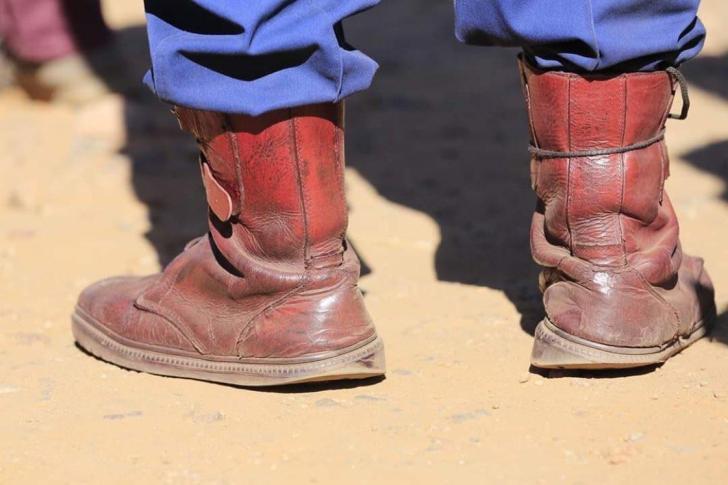News / National
Zimbabwean police surprisingly restrained during stayaway protest
01 Apr 2025 at 08:07hrs |
0 Views

By their usual repressive standards, Zimbabwean police were unexpectedly restrained and professional in their handling of the recent nationwide stayaway and attempted street protests. Unlike past demonstrations that were often met with brutal crackdowns, security forces adopted a more measured approach, avoiding excessive force.
There are several possible reasons behind this unusual restraint.
Firstly, there was no immediate major threat to President Emmerson Mnangagwa's administration from the stayaway. Insiders suggest that government officials instructed the police to avoid heavy-handed tactics, aiming to minimize negative publicity and prevent further inflaming tensions.
Additionally, authorities may have been wary of provoking protesters, fearing that any aggressive response could escalate the situation and trigger wider unrest. In the past, violent police actions have led to prolonged clashes and increased public defiance.
Reports of internal divisions within Zimbabwe's security apparatus - including the police, intelligence services, and the army - may also have played a role. Some elements within these forces are believed to be sympathetic to the protesters' grievances, possibly influencing the police to act with more caution.
With the stayaway attracting international attention, the government and police likely sought to avoid actions that could be perceived as repressive or authoritarian. In an era where images of police brutality can go viral instantly, authorities may have been conscious of global scrutiny.
However, this newfound restraint does not necessarily indicate a long-term shift in police behavior. The situation in Zimbabwe remains volatile, and future protests could still be met with the same force and violence that has characterized past crackdowns. Whether this marks a change in policing strategy or merely a temporary tactical decision remains to be seen.
There are several possible reasons behind this unusual restraint.
Firstly, there was no immediate major threat to President Emmerson Mnangagwa's administration from the stayaway. Insiders suggest that government officials instructed the police to avoid heavy-handed tactics, aiming to minimize negative publicity and prevent further inflaming tensions.
Additionally, authorities may have been wary of provoking protesters, fearing that any aggressive response could escalate the situation and trigger wider unrest. In the past, violent police actions have led to prolonged clashes and increased public defiance.
Reports of internal divisions within Zimbabwe's security apparatus - including the police, intelligence services, and the army - may also have played a role. Some elements within these forces are believed to be sympathetic to the protesters' grievances, possibly influencing the police to act with more caution.
With the stayaway attracting international attention, the government and police likely sought to avoid actions that could be perceived as repressive or authoritarian. In an era where images of police brutality can go viral instantly, authorities may have been conscious of global scrutiny.
However, this newfound restraint does not necessarily indicate a long-term shift in police behavior. The situation in Zimbabwe remains volatile, and future protests could still be met with the same force and violence that has characterized past crackdowns. Whether this marks a change in policing strategy or merely a temporary tactical decision remains to be seen.
Source - online
Join the discussion
Loading comments…
































